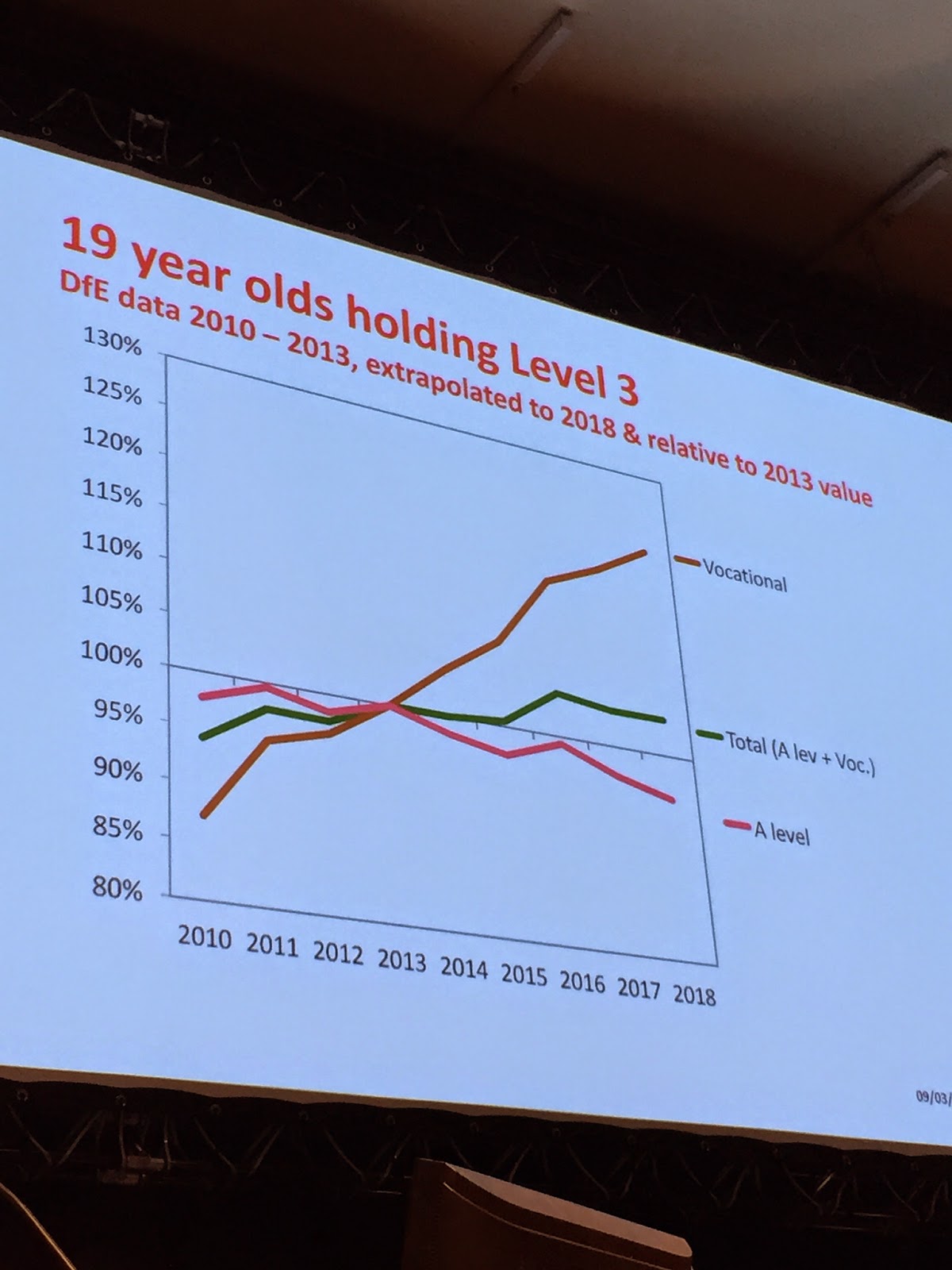Final keynote of this DigiFest is from Richard Watson, writer, speaker and consultant who advises organisations on the future.
His talk was entitled Digital vs Human, and was actually about reducing, or limiting our use of technology. Some brief notes from an entertaining speech:
This year there will be more phones than people.
75% of 10 year olds in UK have a phone.
Voice traffic going down, text and image based rising.
Increasingly we are communicating with each other through a screen. Does it matter?
With text, there is no tone, no body language.
Even with Skype lose important elements of communication.
Can lose as much as 90% of clues without voice tone and body laguage
We are communicating more than before, but how much is being understood.
Recent research shows that on average we check our phones once every 390 seconds.
This sort of activity leads to "Constant partial attention"
When it comes to things that matter, nothing is better than face to face contact
Digital communications should be used to enhance relationships, not replace them.
Average office worker gets distracted every 11 minutes, can take 40 minutes to get back to where they were. A constant apprehension of being distracted causes big productivity loss
Could smart machines end up taking our jobs?
Possibly. Robots in have been in car assembly since 70s
But we are now on the cusp of smart machines making in-roads into many jobs.
Gartner suggests 1:3 jobs redundant by software by 2025
Robots are already being used in kindergartens and care homes in Japan
So, what can we do that machines are dreadful at? What makes us different?
Humans are curious
Like to interact physically
Highly creative
Care about welfare of other humans
If you can connect with people emotionally, your job might be safe :-)
Some consequences of interacting with digital and mobile devices. We are making conscious choices to avoid people, physical relationships. Simulations of life are more captivating than real life.
Attention spans are shorter now in children. Books are too long and boring. Solution, - more screens and more interactive content. But, isn't that making things worse?
There is a loss of deep thinking. Screens are great for finding and discovering stuff. But no focus, no contextual thought.
Only 1% of people searching on Google get past the first page of search results.
Digital technology should be used to enhance human skills and behaviour not replace it. It's not digital vs human, but digital
and human
Three suggestions from him:
Switch off
Ritualise being without our devices for a day a week. Switch off work device after 7. Switch mind off. If you want to have a good idea, stop trying to have a good idea. Silence, stillness, slowness should be valued.
Understand strengths and weaknesses of different technologies
Match the technology to the task. Paper and pixels are different. Screens are useful for connecting short bits of information. Great for collaboration and finding stuff
Paper good for complex arguments, contextualisation.
Work out the best technology to use. A pencil is much a piece of technology as an iPad
Sleep
Important to get enough. Essential for physical and mental health and ideas.
Sleep on it is a good phrase. When we sleep the brain processes information and assimilates information as memories. Filters stuff. Links ideas to extract meaning.
Used to go to bed to sleep. Now bedrooms are media rooms or offices. Type of light in kindles and iPads disturbs our sleep patterns.
People used to sleep around 9 hours a night. Recommendation used to be 8 hours, now it's 7.
Sleep on that.
So, at the end of a Digital Festival, we have a call to reduce our use of digital. Interesting ;-)
Great conference, really enjoyed, it apart from seriously spraining my ankle and having to limp around for most of the day.
- Posted using BlogPress from my iPad
 A couple of other interesting things from this week. CiCS was instrumental in organising the 4th HPC@Sheffield event. A one day research computing conference exploring how high performance computing can help solve global challenges in Physical Sciences, Engineering, Health Care and Social Sciences. There were presentations, posters, vendor displays and demonstrations. unfortunately I could only be there for the opening, but reports are that it went really well.
A couple of other interesting things from this week. CiCS was instrumental in organising the 4th HPC@Sheffield event. A one day research computing conference exploring how high performance computing can help solve global challenges in Physical Sciences, Engineering, Health Care and Social Sciences. There were presentations, posters, vendor displays and demonstrations. unfortunately I could only be there for the opening, but reports are that it went really well.





































